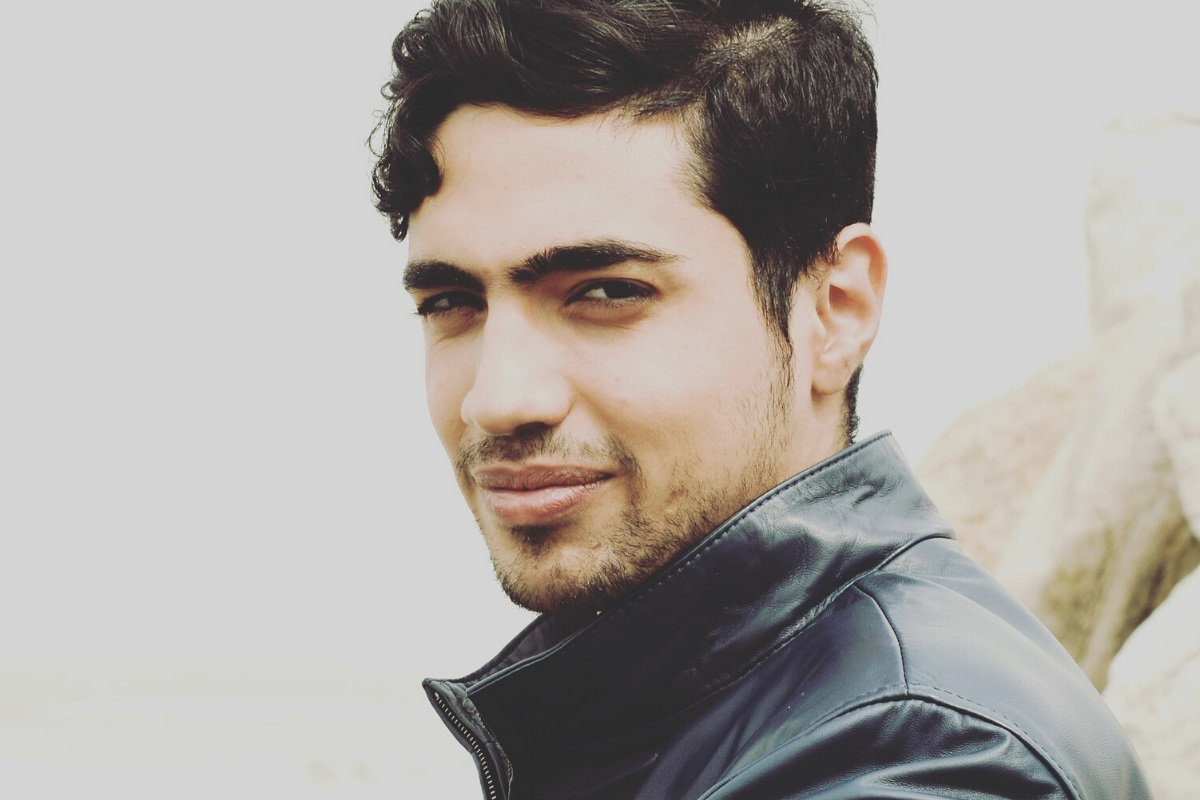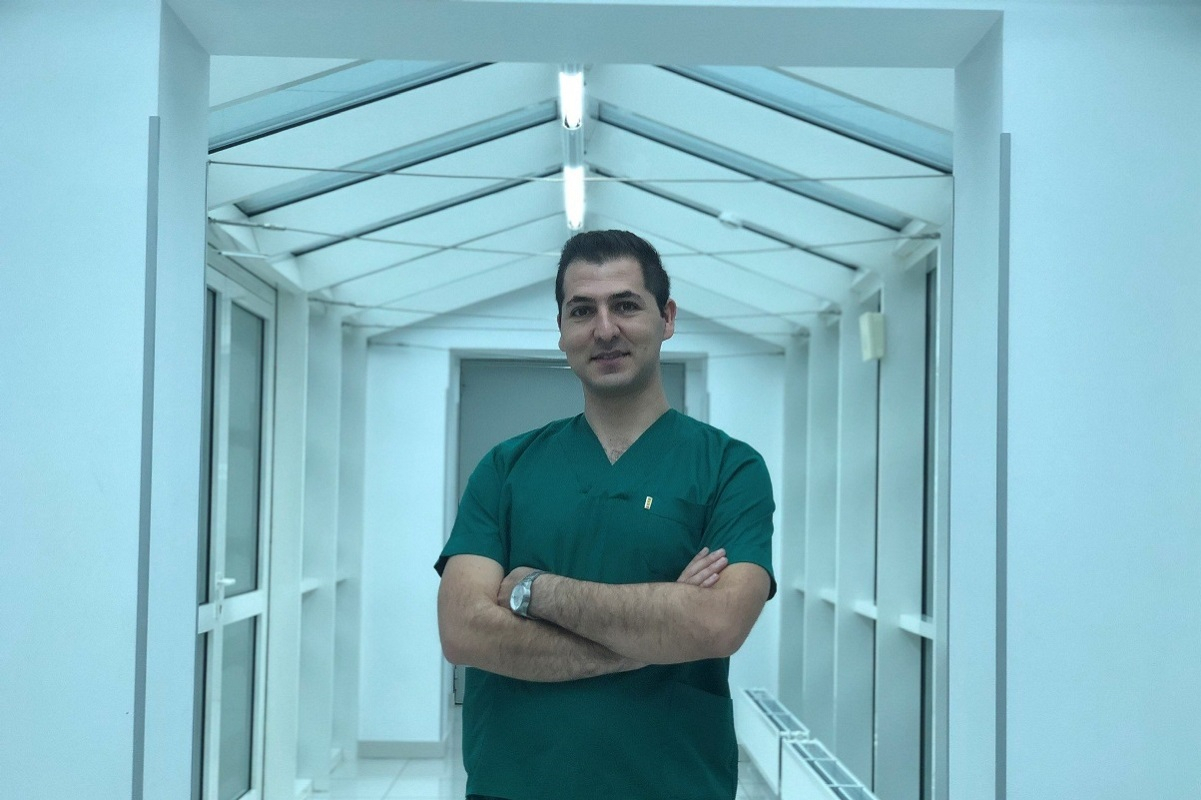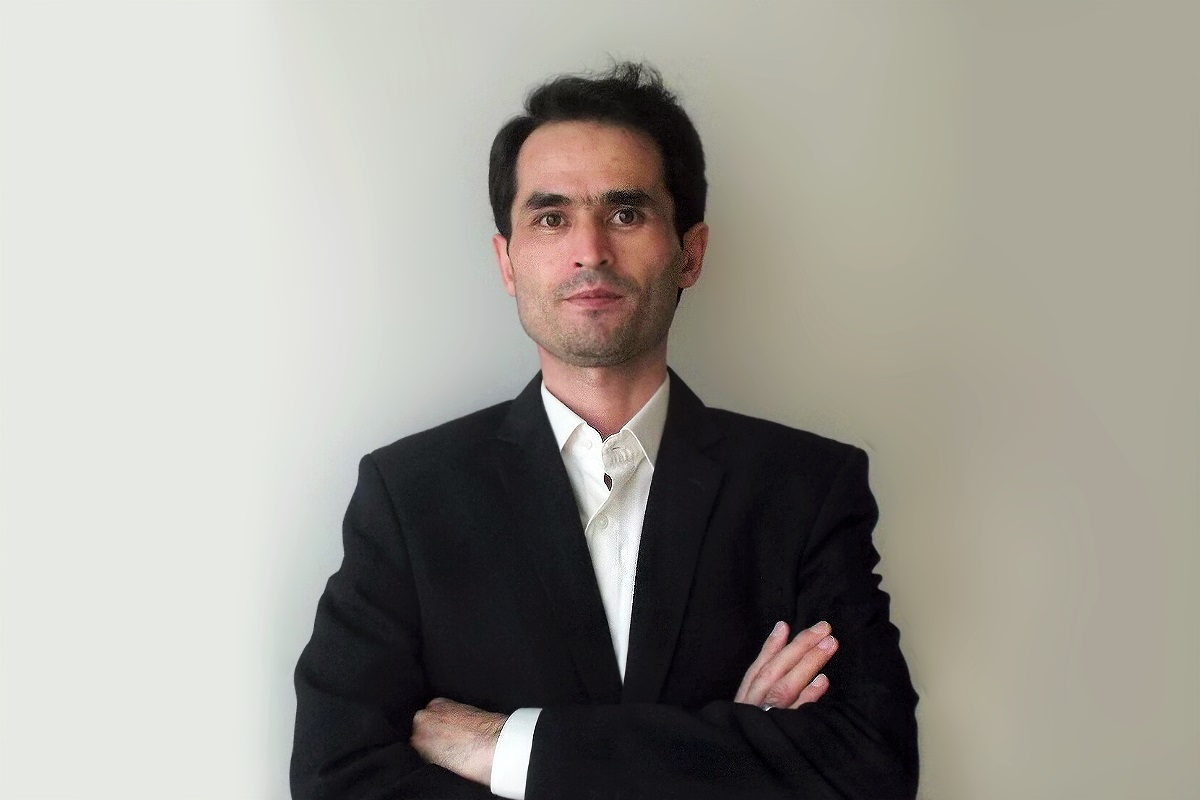Iranian Student: "I wanted to study in Russia, and my mom supported my decision"
For many years, St Petersburg University has been actively developing relations with the Republic of Iran, and every year applicants from that country join the ranks of students at the University. What is more, in 2019 St Petersburg University became the only place outside of Iran that conducts the Persian language proficiency test (AMFA).
We asked several alumni and current students to share their impressions of what it was like to study at St Petersburg University and to talk about the field of study that they chose and how they got on with their fellow students. And also about their plans for the future and their feelings about life in Russia.
Alireza Noori – a PhD in Political Science and graduate of St Petersburg University (School of International Relations). He defended his thesis under the supervision of Vataniar Yagya, an Honoured Scientist of the Russian Federation and Honorary Professor of St Petersburg University
Fereidouni Mohsen
Norouzpour Mohammadmahdi – a master’s student in the English-language programme Corporate Finance (St Petersburg University Graduate School of Management)
What made you decide to come to Russia and apply to St Petersburg University?
Alireza: When I was an undergraduate student at the University of Tehran, I took Russian language courses, so I already knew something about Russia. I knew that the level of education at this university was very high. On top of that, I found a programme that corresponded to what I was interested in. I had studied Russian foreign policy and Iranian-Russian relations.
Fereidouni: I was doing my military service and had no plans to go to university, but four months before the end of my stint in the army, I decided, all the same, to continue my studies. Everybody was shocked, and a lot of people tried to talk me out of it – my mom was the only one who supported me. Right from the start, I set my heart on studying abroad. I had read a lot about St Petersburg University and it really attracted me. All the more so since I knew a little bit about the city, for instance, that it was the cultural capital of Russia.
I think that St Petersburg University is the number one university in Russia, the best. The first time I applied, I came up two points short of getting in, but I hadn’t applied anywhere else. I had set my sights on this University because this is where I wanted to study, and nowhere else. The second time, I studied the language and put everything I had into getting myself prepared. I checked every last word in my essay and motivation letter, so I wouldn’t make a single mistake. Now I’m on a scholarship. I really like it that everything here is in good order. Of course it’s not easy, and I have to spend a lot of time on my studies, but I think that what they give you here is a real higher education, one that you can be proud of.
If a person graduates from St Petersburg University, it means that during their student years they poured over their books day and night.
Norouzpour: I was looking for a way to get a higher education outside my own country. But in my field, European programmes are rather expensive, and they give few scholarships. Besides that, there are problems getting a visa. Iran is under sanctions now. So I considered Russian universities, since relations between our two countries were good. And in Russia, they offer quicker and more flexible alternatives for dealing with the paperwork. The University here offers just such a flexible system of admission – one based on an applicant’s portfolio, which was a big plus for me.
Could you please tell me about your impressions of the academic programme at St Petersburg University?
Alireza: I’m a specialist in Russian foreign policy, so studying in Russia and being a part of the Russian community has become for me a unique experience and has really helped me in my profession. This is the field that I am working in at the moment.
Fereidouni: We have a lot of practical training every semester. After the first year, students have a practicum in zoology and biology. We make a plant collection and dissect animals. During the second year, we do practical training at a hospital because we already need to know more about medicine. Anatomy is considered to be one of the most important and most difficult subjects for us, and we have our classes at the Military Medical Academy. By the way, we have to get anatomy word-perfect in Latin here.
Norouzpour: We often carry out projects, and that helps us to get a better understanding of the topics that we study. Some of the projects are more hands-on than others. For example, in our Corporate Finance course we used actual data, websites and sources, but in our Quantitative Finance classes we used the Stata software package.
Norouzpour Mohammadmahdi
I’m taking an English-language course, but even so I feel that knowing Russian will help me get through my internships and in life as a whole. We had a course in basic Russian, but I haven’t had time for anything more ever since then. Along with studying at the University, I’m working on obtaining an ACCA (Association of Chartered Certified Accountants) certificate, and for that I’ve got to pass thirteen exams.
What are your goals, and what kind of plans do you have for after you graduate?
Alireza: At the moment, I’m an associate professor in the Political Science Department at the Faculty of Economics and Political Science at Shahid Beheshti University in Tehran. Considering recent events in the Middle East and the amount of cooperation between Tehran and Moscow, I would like to teach in short-term programmes here in Russia as a visiting professor, to talk about political events in the Middle East and about relations between Iran and Russia.
Fereidouni: I would like to work as a neurosurgeon. But for now my main goal is to graduate from the University, and after that, I have no idea what will be next. After I graduate, I would like to study in Europe or continue my studies here. All I have to do is to learn English. I’ve heard that there are university exchange programmes.
Norouzpour: I’m planning on going abroad on an exchange programme. I recently applied to study for a semester in England. St Petersburg University gives an opportunity to get an Erasmus grant, which will cover the cost of such a programme. Maybe I’ll be able to find some leads on a job there. I dream of going on and getting a PhD after I graduate.
Are there any differences between studying in Iran and in Russia?
Fereidouni: We have a lot of good universities, for example Sharif University of Technology. Every year, students from St Petersburg University go there to study. It’s highly competitive, and those who want to apply spend from one to four years preparing for it. But once they get in, it’s not so hard to study there. It’s different here. It’s a lot easier to get accepted at a Russian university, but it’s a lot harder to graduate. On the other hand, the cut-off score for foreign students to get in at St Petersburg University was 65, while at other universities it was between 40 and 45. And if you compare the questions on the exams at other universities with the ones here, you can see the difference between them – it’s like the difference between questions for the first grade and the eleventh grade. So, right from the start, the level of all the students at St Petersburg University is really high!
Norouzpour: You know, the most important thing is the other students. When I was doing my undergraduate degree in Iran, it felt like everybody around me didn’t know a thing, and I knew everything. At St Petersburg University, it’s just the opposite. My colleagues are really talented, they’re really smart – they even know several languages, but I don’t. I think it’s all about the people who are around you – they can help you improve yourself, they can help you be a better student.
Tell me, please, about your life here in Russia. Do you like this city? How do you get on with the locals?
Norouzpour: Unfortunately, I haven’t spent a lot of time with any Russian students, but I’ve become good friends with a guy from Uzbekistan, and he’s helped me a lot. St Petersburg is a beautiful city, and it’s not as cold here as I thought it would be. On the whole, the people here are really pleasant. Whenever I’ve asked for help on the street or at the University, nobody has ever refused. So far, I haven’t been able to get to very many places because I’ve been all caught up in my studies. But I do like to go to holiday celebrations and parties with other international students.
Russian food is a lot different from Iranian food. For one thing, people eat a lot of soup here, and I’m not used to that.
Fereidouni: I think the city is beautiful, it’s cultural, and it’s calm. I have worked for a year as a tour guide here, and so I know its history really well and I’ve been almost everywhere. St Petersburg reminds me a lot of my hometown in Iran, Shiraz, which is known as a city of flowers, wine and poets. I lived in Moscow for a short time, and that was enough – there are too many people there. I’m not at all homesick. I’m the sort of person who gets accustomed to a new place straight away. Besides, I have a goal that I’m working toward. I’m also a good cook, so I have no problems with the food. As for Russian cuisine, I like rolled pancakes and fritters. I don’t hang out with foreigners– all of my friends are Russian. And I spend a lot of time studying. Although I’m a foreigner, I’ve already got a Russian mindset.
What would you advise somebody who has just set their sights on studying at St Petersburg University, and what would you wish them?
Fereidouni: It’s okay to be afraid. It’s to be expected, but then you’ve got to do something. It doesn’t happen that when a person actually does something they get nothing in return. Foreign students need to know Russian. And they need to understand that at St Petersburg University, they will have to hit the books, and there will most likely be very little time for working or just taking a stroll around the city. All the same, I do find time to play volleyball, because I’m really keen on sports. If you end up with two or three days off, you can take a short trip. I’ve managed to spend a little time in Moscow, Kirov and Syktyvkar.
Norouzpour: Learn the Russian language! This country is full of potential, and it’s full of talented people. As opposed to Iran, a lot of big multinational companies have offices here. The expanding economy here opens up a lot of possibilities. As an example: last year the rate of return on the Russian stock market became the highest in the world. I can see that there are lots of opportunities for professional growth in Russia.




